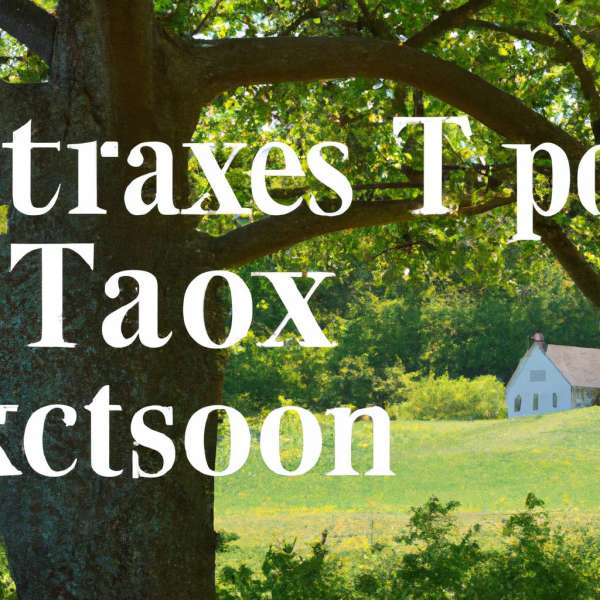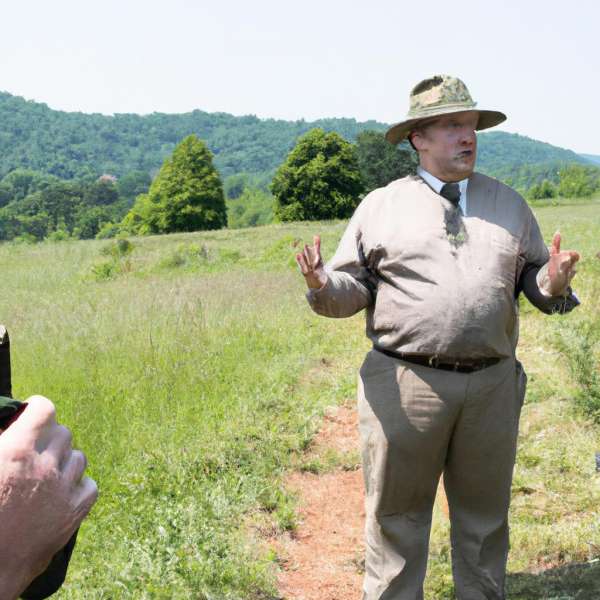Navigating the Fields of Legacy: A Guide to Estate Planning for Farmers and Ranchers
In the heart of rural landscapes, where the golden wheat sways under the sun and livestock graze peacefully in the pastures, lies the lifeblood of our food system—farmers and ranchers. These stewards of the land dedicate their lives to cultivating not just crops and livestock, but also a legacy that often spans generations. However, as vital as their work is, many in the farming and ranching community overlook a crucial aspect of their legacy: estate planning.
Estate planning may seem like a daunting task amidst the daily rhythm of planting, harvesting, and caring for animals, yet it is an essential step in safeguarding the future of their operations and families. This article explores the unique considerations farmers and ranchers face when planning for the transfer of their assets, ensuring that their hard work continues to flourish long after they’re gone. From understanding the nuances of land ownership to addressing the emotional ties to family heritage, we will provide a comprehensive overview of estate planning tailored specifically for those dedicated to the land. Join us as we delve into the essentials of preserving not just property, but a way of life.

Navigating Succession Planning in Agricultural Enterprises
For farmers and ranchers, developing an effective succession plan is as crucial as managing the daily operations of the land. Planning for the future allows for a smooth transition of assets, ensuring that the hard work and legacy of agricultural enterprises continue to thrive. To navigate succession planning, consider focusing on these key elements:
- Dialogue with Heirs: Open conversations with family members or successors about their aspirations and roles can be vital. This discussion lays the foundation for nurturing future leaders.
- Asset Valuation: Regularly evaluate your farm’s assets, including land, equipment, and livestock. Understanding their current value is essential in crafting a fair and effective plan.
- Business Structure: Review and possibly restructure the farm’s legal and financial frameworks. This assists in minimizing tax liabilities and protecting assets from unforeseen events.
In formulating a plan, it’s also important to address potential challenges that may arise during succession. Recognizing these can help implement effective solutions ahead of time:
| Challenge | Solution |
|---|---|
| Family Disputes | Facilitate family meetings to discuss everyone’s concerns. |
| Financial Setbacks | Create a robust financial plan that includes contingencies. |
| Loss of Business Knowledge | Implement a mentorship program for successors. |
Ultimately, successful succession planning emerges from a combination of thorough preparation, open communication, and a willingness to adjust as circumstances change. By taking proactive steps today, farmers and ranchers can ensure that their legacy stands strong for generations to come.

Understanding Tax Implications for Rural Estates
When planning the future of a rural estate, it is essential to grasp the unique tax implications that can significantly affect the financial legacy left behind. Rural estates often encompass agricultural assets, which can represent not only personal property but also substantial business interests. Understanding the intricacies of taxation on these assets allows farmers and ranchers to create a more effective estate plan, ensuring that their hard work benefits future generations without being hampered by unexpected tax burdens.
Several key factors must be taken into account when navigating the tax landscape for rural estates:
- Estate Taxes: Knowing the current thresholds for federal and state estate taxes is crucial. Rural wealth often stems from land and equipment, which, while valuable, may not be liquid assets. Proper appraisals and planning can help mitigate tax consequences.
- Valuation Discounts: The IRS allows certain discounts on valuation due to lack of marketability or minority interest, particularly for family-owned businesses. This can lower tax liability and ease the transfer process.
- Generation-Skipping Transfer Tax: For those wishing to leave their estate to grandchildren, understanding the implications of this tax can protect assets from being overly taxed over generations.
- Capital Gains and Inheritance Taxes: When selling property or transferring it as an inheritance, it’s imperative to consider potential capital gains taxes that could emerge in the future.
To visualize the tax implications, here’s a simplified table illustrating the primary considerations in estate planning for farmers and ranchers:
| Consideration | Details |
|---|---|
| Federal Estate Tax Exemption | $12.92 million (2023) |
| State Estate Tax Threshold | Varies by state; some states have no estate tax |
| Business Valuation Methods | Market, Income, and Cost approaches |
| Potential Discounts | Up to 30% for lack of marketability |
it is wise for farmers and ranchers to collaborate with tax professionals who specialize in agricultural businesses and estate planning. Their expertise can provide clarity on the nuances of tax laws and help in implementing strategies that optimize estate plans. With proactive planning and informed decision-making, rural estate owners can ensure that their legacy continues to flourish while minimizing tax liabilities.

Incorporating Family Dynamics into Farm Legacy Strategies
Understanding and respecting family dynamics is crucial when developing a legacy strategy for a farm or ranch. Each family member brings their unique perspective, dreams, and aspirations, influencing the overall vision for the future of the farm. Therefore, cultivating open communication channels among family members can significantly impact the effectiveness of any plan. Consider the following elements to embrace these dynamics:
- Regular Family Meetings: Establish a routine for family gatherings focused on discussing farm goals, challenges, and individual contributions. This transparency encourages involvement and collective problem-solving.
- Individual Roles and Responsibilities: Clearly defining roles can eliminate confusion and prevent conflicts. Map out who handles what aspects of the business, aligning responsibilities with personal strengths and interests.
- Conflict Resolution Strategies: Develop a plan for addressing disagreements when they arise. Engaging a neutral third party, such as a mediator or family counselor, may be beneficial in facilitating healthy conversations.
Creating a legacy plan that considers each member’s aspirations can significantly enhance commitment to the family business. A healthy balance between individual ambitions and collective goals helps forge a unified vision for the farm’s future. One effective approach involves identifying potential successors and providing them with opportunities to gain practical experience. Craft a succession plan that might look like this:
| Family Member | Interest Area | Development Opportunities |
|---|---|---|
| Sarah | Crop Management | Internships with local agronomists |
| Mike | Livestock Care | Veterinary technician courses |
| Lisa | Business Management | Farm management workshops |
By painting a clear picture of the farm’s needs alongside family members’ aspirations, you create a fertile environment for a thriving family operation. When each generation understands its role, future potential is maximized, ensuring the business not only survives but flourishes across generations.

Utilizing Trusts and Wills to Protect Agricultural Assets
When it comes to safeguarding agricultural assets for future generations, both trusts and wills serve as essential tools in estate planning. These legal instruments not only help in the clear distribution of assets but also facilitate the ongoing operations of the farm or ranch. By establishing a well-structured estate plan, farmers and ranchers can ensure that their legacy continues without disruption.
**Wills** provide a straightforward approach to asset distribution upon an individual’s passing. They allow for the designation of heirs and the specification of how farm equipment, livestock, and land should be divided. However, a will typically undergoes probate, which can be a lengthy and costly process that may temporarily disrupt the operation and management of a family farm. To combat this, many estate planners recommend the inclusion of **trusts**.
**Trusts**, on the other hand, can be highly beneficial in managing agricultural assets during the lifetime of the owner and beyond. By placing property into a trust, farmers can avoid probate entirely, allowing their operations to continue seamlessly. This vehicle can provide flexibility in managing assets, ensuring that precise conditions are met before any transfer of ownership occurs. Key benefits of trusts include:
- **Continued operation** of the farm without interruption
- **Protection from creditors**, which can be crucial for agricultural businesses navigating market fluctuations
- **Tax advantages**, potentially reducing the overall estate tax burden on heirs
To illustrate the differences and advantages of trusts versus wills, consider the following simple comparison:
| Aspect | Will | Trust |
|---|---|---|
| Probate Required | Yes | No |
| Privacy | Public record | Private |
| Control over Distribution | Posthumous | Ongoing during lifetime |
| Flexibility | Less flexible | More flexible |
incorporating both trusts and wills into estate planning offers farmers and ranchers a comprehensive strategy to protect their agricultural assets and ensure the longevity of their operations. By thoughtfully considering how these tools work together, farmers can create a legacy that enhances both their operational viability and the well-being of their heirs.
In Summary
As the sun sets over the vast fields and rolling pastures, the realities of farming and ranching extend beyond the harvest and the livestock. Estate planning for farmers and ranchers is not merely a legal necessity; it’s a testament to the legacy of hard work, resilience, and dedication that has been cultivated over generations. By thoughtfully addressing the complexities of transferring ownership, managing assets, and safeguarding family harmony, you pave the way for future generations to thrive in the land you cherish.
In this journey, knowledge is your greatest ally. Engaging with professionals and utilizing resources tailored to the unique challenges faced by agricultural families is paramount. With the right strategies in place, you can ensure that your legacy reflects your values, vision, and commitment to your land, allowing the next generation to continue what you’ve sowed.
Remember, effective estate planning is not merely about the distribution of assets; it’s about preserving the spirit of your farm or ranch, fostering unity among family members, and securing the livelihood of those who will carry the torch forward. As you contemplate your own estate plan, take the time to reflect on the future you envision—not just for yourself, but for your family, your community, and the land that feeds us all. The seeds of today’s planning can yield a bountiful harvest for tomorrow.


